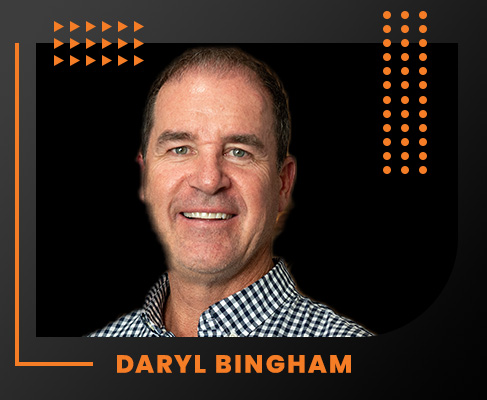M&A hasn’t shown any signs of slowing down in the home service industry. More and more owners are getting flooded with LOIs (letters of intent) about selling their businesses, and may not be aware of how to proceed. Do you ignore it? What is your business worth? Does selling my business mean I have to walk away from the company I’ve built? Brain Cohen of SF&P Advisors is here to answer many common questions about M&A in the current market, and help you navigate what it means to sell your business today.
LOI Overload
So many owners are getting contacted about selling their business these days. LOIs are being thrown around like candy, and it’s not always easy to know if taking candy from strangers is the right thing to do, at least in this situation. Why is this happening? First, you have to know that interest rates are low right now. The capital gains tax is at 20%, and that has big implications for acquisition deals.
The other big factor at play is that private equity (PE) groups don’t have as many places to invest right now as they did before COVID. PE groups historically have loved to invest in restaurants. They buy them, flip them, and move on to the next. Who wants to invest in a restaurant right now? Another common pre-COVD investment strategy was in commercial real estate, which has slowed down considerably as well. The bottom line is that these PE companies have raised private capital, and need to deploy those funds, but have limited opportunities to do so. They can’t return those funds back to the investor or they won’t ever raise capital again. They have to find a place to invest the money.
The HVAC/plumbing/electrical space hasn’t always been the sexiest investment space, but it’s always yielded fair returns. After COVID-19, the fact that our industry was deemed essential and proved itself to be both recession and pandemic-proof made it very attractive to investors. Before COVID, these PE groups were seeing 2 or 3 thousand potential deals slide across their desks a month. Now, that number is down to a few hundred; an 80-90% decline in investment opportunities. That means that there is a ton of interest and competition for home service industry companies…and way bigger multiples and offers than ever before.
Why Would I Ever Want to Sell My Company?
There is still a ton of misunderstanding around what it means to sell your business. In the old days, selling your business meant a full exit. You took the cash, walked away, and either rode off into the sunset or started another company. Nowadays, owners are staying right where they are and finding great success in creating a partnership with their PE group that has benefits for both parties. In other words, you can get a payday now, stay right where you are, and even have the chance at another (or several more) paydays down the road.
If you’re a business owner, you’re probably a type-A personality. You’re successful, driven, ambitious, and love being your own boss. Why the hell would you go work for someone else? It’s a common objection, but one that shouldn’t deter you from entertaining your offers. There’s no way around the fact that yes, you’ll be entering an employee agreement with your partner but looking at it that way is all wrong. Your new partner is ready to write you a big-ass check and doesn’t want you to do anything differently than before. Just keep running your business like you have been and collect a big paycheck!
Multiple Paydays?
Selling your business can mean more than just a single lump sum. In fact, it usually doesn’t mean a single transaction. For example, let’s say you agree to an LOI for 10MM. The buyer is almost always going to want you to have some stake in the game moving forward. It’s not uncommon to have a percentage of that sale upfront and a smaller percentage in the form of equity. In this example, let’s say you get 8 of the 10MM right away, and 2MM in equity with your PE partner. Your PE group could have several holdings similar to yours, and something like 20-40MM in EBITDA. You’ve just received a slice of that whole pie. When your PE partner does exit these other investments (it could be in a year, 5 years; each group has their own exit strategies), you’ll get paid again. That 2MM in equity might be worth 2, 3, or 5x as much now. Suddenly, your second bite means your 10MM deal is now an $18MM payout. You might be asked by your PE partner at this point to reinvest that equity and “roll again”, giving you the chance to start a line of multiple payouts should you wish to go that route.
How Do I Know What My Business is Worth?
As a business owner, you absolutely have to know what your company is worth. If you don’t know the value of your business, how can you know if the offers you’re getting are any good? You might need multiple offers to really get a feel for what your business could go for. It’s kind of like putting your house on the market. You wouldn’t necessarily take the first offer you got, and without a real estate agent and broker, how would you know if it’s a good deal?
Some people out there are trying to get these deals done on their own, and making some big mistakes. This could be the biggest transaction of your life, so it’s not time to play games. You can’t just guess your EBITDA, and just because another company around your size got a certain number doesn’t mean you aren’t worth a lot more or less. You might also feel like you’re too small, or that you aren’t where you want to be. Keep in mind that there are plenty of 1.5-2MM deals being done—they aren’t all 30MM+.
Brain and SF&P Advisors speak with a ton of businesses that often find out they are worth way more than they thought. Don’t make the mistake of thinking that just because you have your own legal team that you’ll be able to maximize your worth on your own. It takes more than just a good lawyer, and it takes more than just agreeing to the first LOI that falls into your lap.
What to Look for in a PE Group
A payday is great and all, but does it matter which PE group I go with? Why wouldn’t you just take the biggest offer? A PE group should be considered your partner, because that’s exactly what you’ll be getting in the deal. PE groups can mean more resources, getting help with your speedbumps, and a back-and-forth knowledge sharing opportunity.
With a PE group, you’re partnered with more power and more resources for getting help with your business. A good partner will help you with your speed bumps, and you may be asked to share some of your knowledge and expertise back with the group. It’s a partnership for growth, and you’ll be in business with this partner for quite some time. Remember, just because someone is willing to write you a huge check doesn’t mean you’ll want to do business with them for the next several years.
Many of these PE groups now have so many holdings in the home services industry that they’re basically strategic partnerships. They often have a really good understanding of the industry and can provide you with great resources and connect you with other business owners. While before a monthly call to check in with your numbers was enough, PE groups are now often asking how they can support you.
You’ll want to make sure the chemistry is there, and that you feel your core values and goals are aligned with your potential private equity partner. You can also look at the history of the deals they’ve done, and where those deals are at right now to figure out where they’re at. Are you the first acquisition for the group in this industry? Are you a platform, or are you one of many in a long list of similar holdings? Are there synergies to be had? SF&P is always looking for synergies and a good fit between their clients and PE groups in the hopes that there is an automatic lift to the business after a deal has been made. It’s not just about the payday, but in what the partnership can bring to the table.
Will This Trend Continue?
The last year has been pretty wild for M&A, with deals being done left and right. But will that continue in the future? A lot of it depends heavily on the capital gains tax code. Let’s say that next year it rises from the current 20% to 40%, as an example. That would mean that if you sold your business, the first 2.5MM is taxed at your ordinary rate, and the other 7.5MM is taxed at the capital gains rate. At 20%, that’s a 1.4MM hit. At 40%, you’re looking at a 2.8MM hit for doing it next year instead of this year.
No one knows for certain what the future will hold, of course. But many signs point to at least some increase in the capital gains tax next year, and you could potentially lose a turn or more on your multiples by waiting. These tax changes typically happen with each administration, and usually get implemented about a year after the administration is in place. That means that waiting out this one could also mean another 4-5 years before you get to roll the dice again, and there’s no telling if it will be higher or lower.
You have to consider more than just the tax code, too. As mentioned earlier, COVID has played a major factor in increasing the interest in home service companies. If the country starts to open back up, and restaurants start seeing more traffic, it will give PE groups more places to invest.
Mistakes, Representation, and Asking for Help
Brain sees mistakes happen all the time in the M&A world. Sometimes, an owner sees an offer with a great number and takes it only to realize down the line that there is an earn-out contingency, a conditional consideration that prevents the owner from seeing the number they thought they were getting. PE groups can use lots of verbiage that doesn’t make sense if you aren’t from that world, too. Add-ons, bolt-ons, and tuck-ins aren’t the latest in cosmetic surgery!
SF&P Advisors has a proven proprietary process and helps businesses navigate M&A all day long. You can give them a few pieces of financial information, and they can give you a good idea of where you’re at with no strings attached. Just as if you were going to court, you wouldn’t represent yourself—you’d get a lawyer! So why would the biggest deal of your life be any different? You’ve worked so hard to get your business where it is today, and having SF&P work hard to maximize the value of your deal can pay some huge dividends. After all, these PE groups can be great people, but it will be in their best interests to get the best deal possible. You should be taking steps to do the same for yourself.
Know Your Worth
If you want expert advice, Brain is here to help. Contacting Brian doesn’t mean you’re necessarily ready to sell, it’s a decision to understand the actual value of your business. You owe it to yourself and your company to know. Once you get that information, you can make an educated decision about the best direction to move towards. In the best case scenario, you’re finding out you’re worth more than you thought. The worst case is that you find out what’s hurting the value of your business and you’ll know what changes you need to make. Either way, it’s going to be valuable for you and your business.
You can reach Brian by texting or calling him at 954-226-3409, or shoot him an email at [email protected]. Just let him know your name and that you heard him on the podcast, and ask when the best time to connect is. He’s happy to help!


